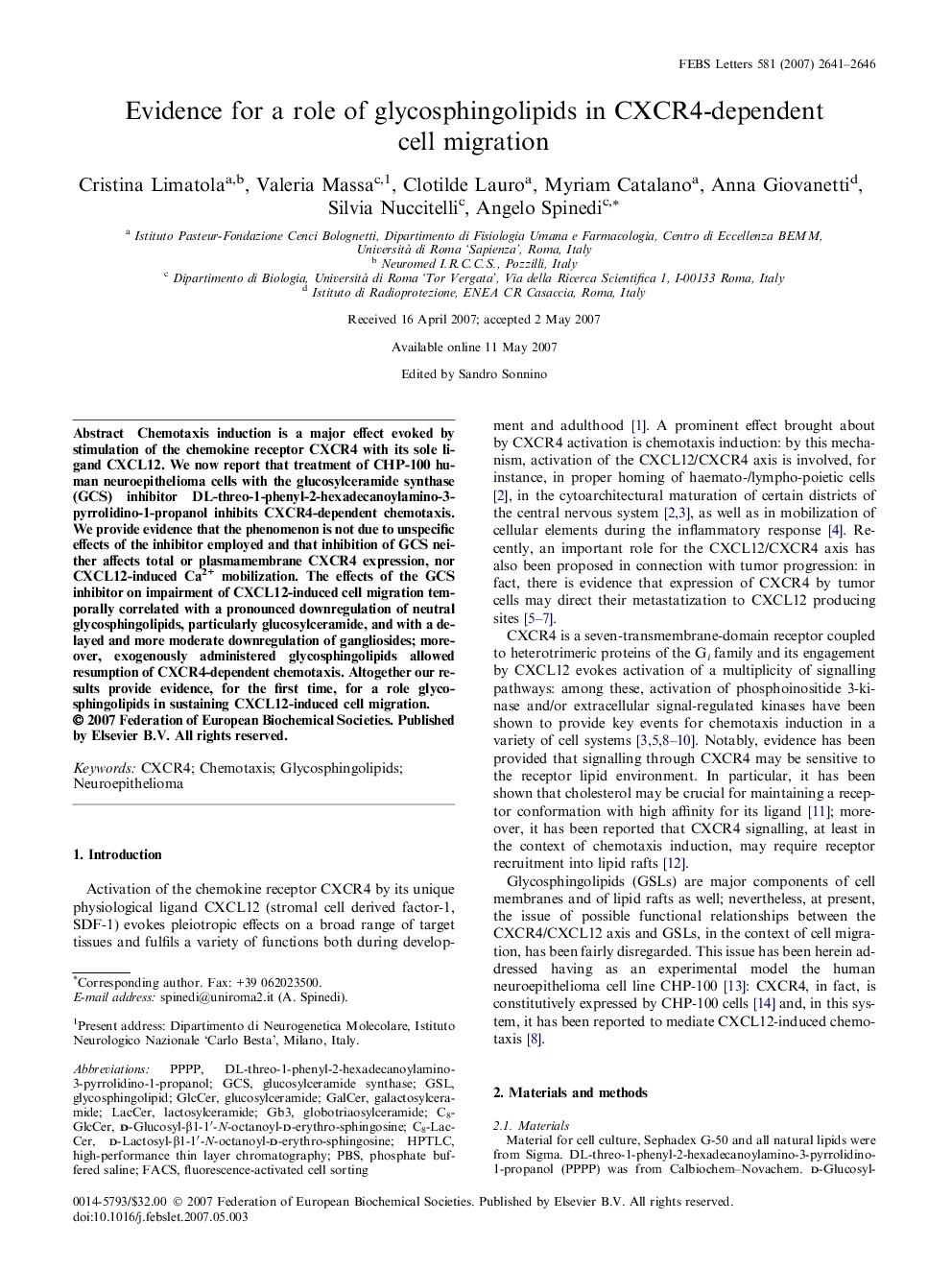| Article ID | Journal | Published Year | Pages | File Type |
|---|---|---|---|---|
| 2051696 | FEBS Letters | 2007 | 6 Pages |
Chemotaxis induction is a major effect evoked by stimulation of the chemokine receptor CXCR4 with its sole ligand CXCL12. We now report that treatment of CHP-100 human neuroepithelioma cells with the glucosylceramide synthase (GCS) inhibitor DL-threo-1-phenyl-2-hexadecanoylamino-3-pyrrolidino-1-propanol inhibits CXCR4-dependent chemotaxis. We provide evidence that the phenomenon is not due to unspecific effects of the inhibitor employed and that inhibition of GCS neither affects total or plasmamembrane CXCR4 expression, nor CXCL12-induced Ca2+ mobilization. The effects of the GCS inhibitor on impairment of CXCL12-induced cell migration temporally correlated with a pronounced downregulation of neutral glycosphingolipids, particularly glucosylceramide, and with a delayed and more moderate downregulation of gangliosides; moreover, exogenously administered glycosphingolipids allowed resumption of CXCR4-dependent chemotaxis. Altogether our results provide evidence, for the first time, for a role glycosphingolipids in sustaining CXCL12-induced cell migration.
